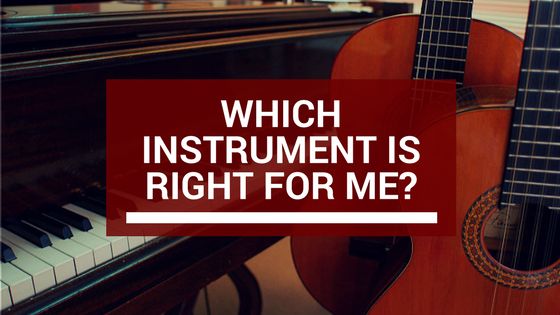Starting to take an interest in musical instruments, but still unsure of what to choose? Picking the right instrument only seems tough at first, but as long as you feel comfortable playing it and enjoy the music you make, you’ll never go wrong. One tip is to also consider whether an instrument will help and motivate you to practice and learn. Here are some tips on choosing the right instrument for you:
SOUND
This is probably the most important factor that you should consider. After all, if you don’t like how an instrument sounds, you most likely won’t be able to enjoy regular practice sessions! Experiment with different instruments and find out firsthand what they sound like. It’s more important to choose an instrument based on how good it sounds, not so much on how good it looks!
SIZE
Instruments come in different sizes and some of them might need more physical strength and stamina in order to play it. Some instruments may be too heavy for you to carry around and might deter you from playing it. Think practically. You have to be at ease when you are playing your musical instruments!
PHYSICAL ABILITIES
As instruments come in different sizes, there are also various ways on how to play them. Wind instruments demand great breath control. The double bass requires strength and stamina. Playing the drums requires endurance and coordination. All of these are skills that can be trained over time, but it is definitely something to keep in mind.
BUDGET
Some instruments are very expensive to purchase, while some are really affordable. You should know what your budget is first, but don’t let it stop you from buying the instrument that you would really love to play! There are lots of alternatives that you can buy that are lighter on your budget. If you want to be a pianist, you don’t have to have a grand piano. If you want to learn guitar, there are tons of affordable acoustic, electric and bass guitars everywhere. We recommend that you to start with an entry-level instrument to practice on. That way, should you change your mind on your chosen instrument, it will be easier to make the shift.

